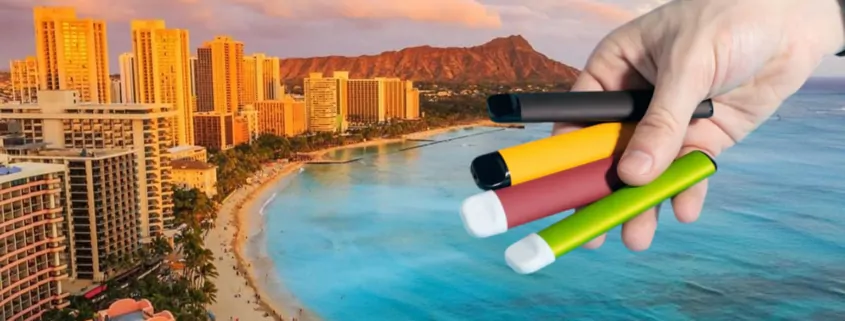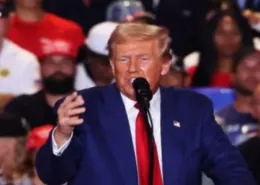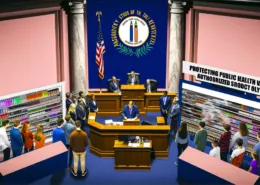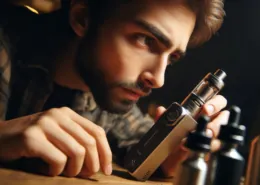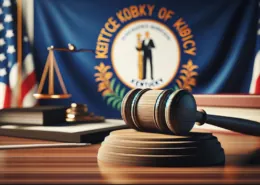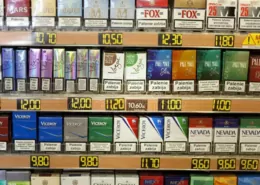Hawaii Lawmakers Reintroduce Bills to Ban Flavored Vapes
Hawaii health advocates and lawmakers are once again pushing for legislation to ban the sale of flavored nicotine and vape products in an effort to protect the state’s youth from the harmful effects of these substances. The Keiki Caucus is backing House Bill 756, which would prohibit the sale of flavored nicotine products and the mislabeling of e-liquids as nicotine-free. Additionally, the Hawaii State Association of Counties supports House Bill 380, which would restore the authority of counties to adopt their own laws regulating the sales of tobacco products and vapes.
The Push for County-Level Action
Pedro Haro, executive director of the American Lung Association in Hawaii, noted that while the state has seen years of fruitless attempts to pass such legislation, this year’s efforts are bolstered by county-level leadership taking a stand against the tobacco industry’s influence on youth health. The state Department of Health has called HB 380 a health equity measure, citing geographic disparities in smoking and vaping rates across the state.
Many counties in Hawaii are seeking to ban flavored nicotine products, but state bills proposing similar measures failed in 2024. House Bill 156 also aims to give counties the power to enact more stringent policies than the state, recognizing their unique position to address the health needs of their communities.
Hawaii’s Tobacco Control Report Card
The American Lung Association recently gave Hawaii an “F” grade in its “State of Tobacco Control” report for the state’s regulation of flavored tobacco products. However, Hawaii received an A for policies supporting smoke-free air, B’s for access to tobacco quitting services and state tax levels, and a C for funding of state tobacco prevention programs.
Despite the state allocating $8.1 million for tobacco control programs this fiscal year, the American Lung Association estimates that health care costs due to smoking in Hawaii amount to $526.2 million, with smoking attributable to more than 1,400 deaths per year.
The Vaping Crisis in Hawaii
The state Department of Health testified that the vaping crisis in Hawaii has evolved and expanded to both younger and older age groups over the past decade. While current e-cigarette use among high school youth has decreased slightly to 13.2%, middle school e-cigarette use has jumped significantly to 10.3%. Anecdotally, teachers have reported students as young as second grade vaping, while an estimated 27.4% of adults ages 18 to 24 reported currently vaping.
Lola Irvin, administrator of chronic disease prevention at the Department of Health, emphasized the need for restrictions on e-cigarette sales, noting that the high nicotine content in these products can interfere with sleep, disrupt memory, and accelerate mood disorders.
Support and Opposition
The proposed bills have garnered support from numerous organizations, including the American Lung Association, the state Department of Health, and the Coalition for a Tobacco-Free Hawaii Youth Council. Middle and high school students have also testified in support of the bills, sharing stories of how flavored vapes have harmed their friends and family.
Opposition to the ban on flavored nicotine products comes from various individuals, small-business owners, ABC Stores, and groups such as the Cigar Association of America and the Tax Foundation. These opponents argue that the ban would cost Hawaii more than $25 million in annual revenue, increase illicit trade, and thwart efforts to convert smokers to users of less harmful nicotine products.
The Path Forward
The House Committee on Consumer Protection and Commerce passed HB 380, reestablishing county rule, with amendments, while the House Committee on Health and Homelessness passed HB 756, with amendments. HB 156, which also seeks to reestablish county home rule, has not yet been scheduled for a hearing.
As Hawaii lawmakers continue to debate the merits of banning flavored nicotine products and restoring county authority to regulate tobacco sales, health advocates remain committed to protecting the state’s youth from the harmful effects of smoking and vaping. The outcome of these legislative efforts will have significant implications for public health and the future of tobacco control in Hawaii.
- News source: Bills aiming to ban flavored vapes reintroduced
- American Airlines Vaping Passenger Alleges Assault in Police Report - August 15, 2025
- NEXA PIX 35K Disposable Vape with Crystal Tank Review - August 15, 2025
- Baton Rouge, LA Imposes 500-Foot Buffer Zone for Vape Shop from Schools - August 15, 2025

